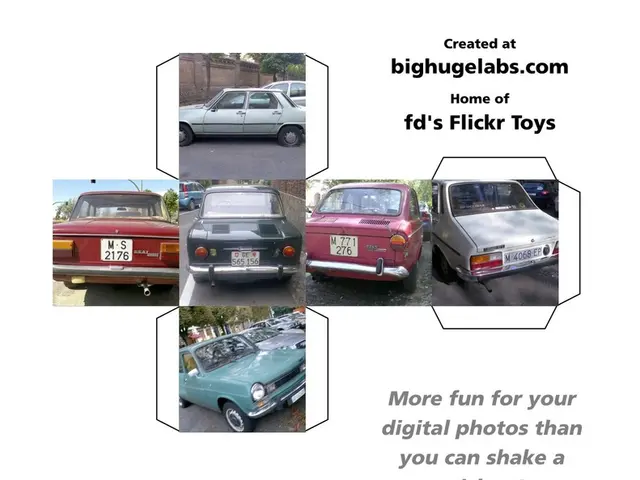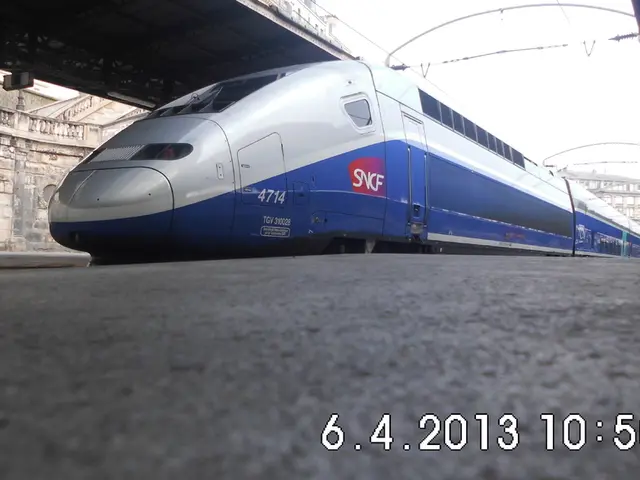Fords Cologne Workers Gear Up for Prolonged Strike Amid Job Cuts and Electric Investment Struggles
Striking Ford Workers in Cologne Prepared for Indefinite Walkout - Strike-Readiness of Ford Workers in Cologne Persists, Indefinitely If Necessary
Get ready for some industrial fireworks in Ford's Cologne plants, Germany. IG Metall, the union representing the majority of Ford's employees in the city, is prepared to initiate an indefinite strike after 93.5% of its members voted in favor of using "all union means, including strikes" to enforce worker-friendly regulations in the new social collective bargaining agreement.
The union is considering its next moves, and strike action could be underway as early as next week, although the extent remains unclear. This could mark the first time striking at Ford in Cologne following a ballot. In previous ballots, a deal was promptly struck between employer and union.
The unionists are pushing hard, with David Luedtke, IG Metall's spokesman at Ford Cologne, declaring, "The people in the plant are behind us." The union warns management that a prolonged labor dispute could also harm Ford's commercial vehicle business in Europe, not to mention the potential brand damage.
Ford is currently hemorrhaging cash in Germany, producing two underperforming electric car models in Cologne, where the company has invested nearly $2 billion to convert its plant to electric production. The venture has yet to yield positive returns.
In an effort to cut costs, management aims to slash 2,900 jobs by 2027. However, these plans are contingent upon the works council's approval, as a two-year-old agreement rules out dismissals for operational reasons.
Verdi, another union, is demanding hefty severance packages for departing employees and financial protection for those remaining in case Ford's plants go bankrupt. With the US parent company withdrawing its guarantee, this scenario has become a possibility.
Since negotiations for a new social collective bargaining agreement have stalled, IG Metall has called for a ballot and received overwhelming support. The union can now call for strikes—either temporary or indefinite. Ford's spokesperson acknowledged the strike right and continued to pursue constructive negotiations. However, IG Metall announced that negotiations would be suspended until the employer presents a viable offer.
Behind the Scenes: Union Demands and Potential Impacts
- Job Security: IG Metall is urging Ford to explore alternative strategies to prevent substantial layoffs. Workers have mobilized to push for these demands[4].
- Investment Stability: The recent agreement to invest $4.8 billion in Ford's German unit, which rendered a longstanding deal where Ford absorbed the subsidiary's losses, has met union protest[4].
In the Balance: Commercial and Electric Vehicle Production
- Production Disruptions: Strikes could disrupt commercial vehicle production, potentially causing delays and supply chain problems. This might impact Ford's ability to cater to customer demands and preserve market share[1][2].
- Market Competition: The competitive commercial vehicle segment offers competitors like Volkswagen and Mercedes-Benz a potential edge if Ford experiences production hiccups[4].
Roadblocks to Electrification
- Electrification Goals: Ford's Cologne plant's transition to electric vehicle production faces hurdles due to weak demand and high costs. Job cuts could further complicate reaching electrification targets[3][4].
- Investment and Technology Transfer: If Ford decides to sell part of the Cologne plant, concerns might arise regarding the future of electric vehicle production. The transfer of technology and investments to new entities could prove challenging[3].
The labor dispute at Ford's Cologne plants sheds light on the challenges the company faces in transitioning to electric vehicles, navigating workforce reductions, and maintaining profitability. This tug-of-war demonstrates the complexities of evolving with the times while meeting the needs and demands of workers and consumers.
- IG Metall, the union responsible for representing Ford's employees in Cologne, is advocating for job security and exploring alternative strategies to prevent significant layoffs, as they believe this to be crucial in the new social collective bargaining agreement.
- The prolonged labor dispute in Ford's Cologne plants could potentially disrupt commercial vehicle production, causing delays, supply chain problems, and potentially impacting Ford's ability to meet customer demands, which could give competitors like Volkswagen and Mercedes-Benz a competitive edge in the market.








